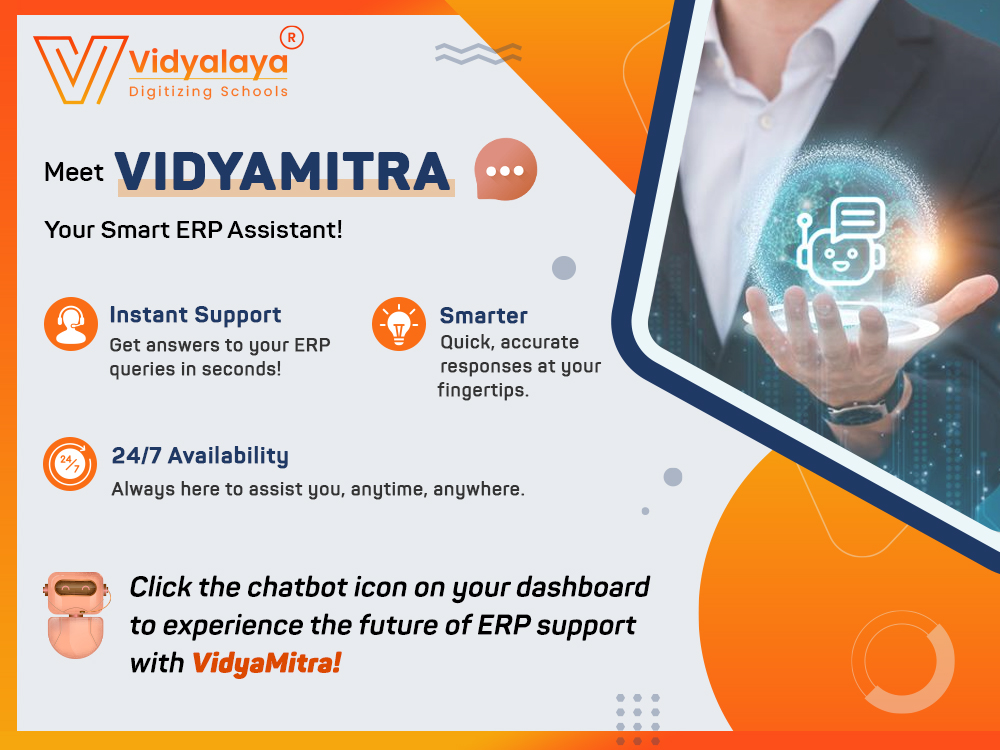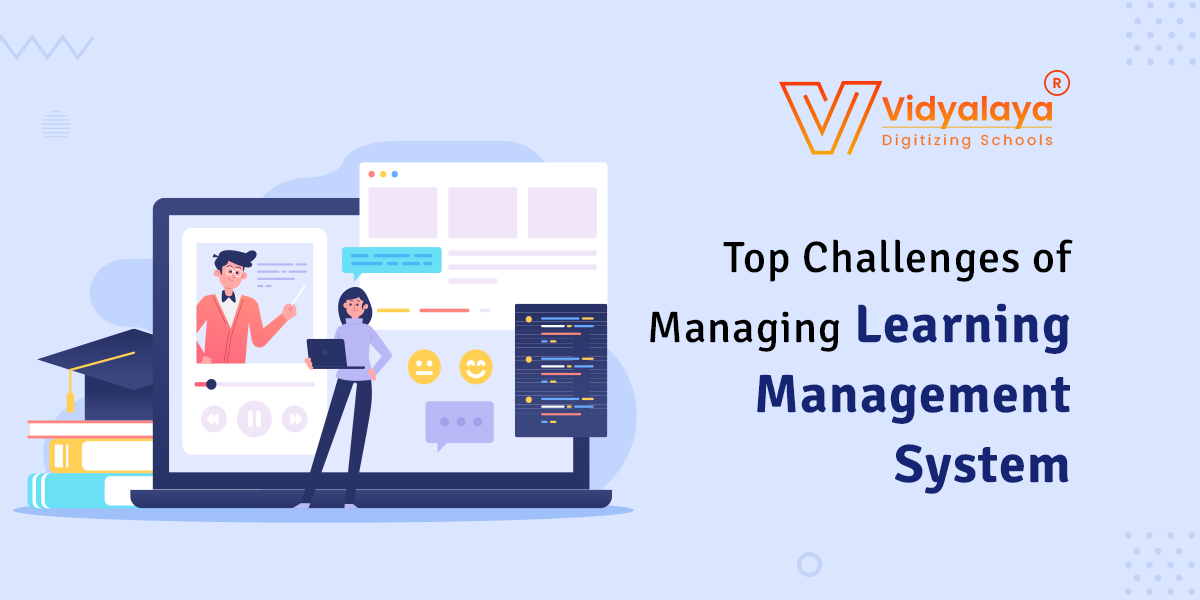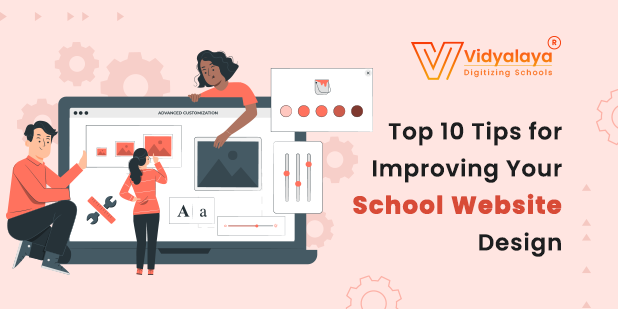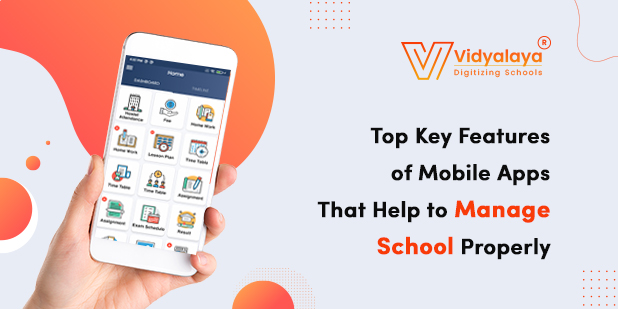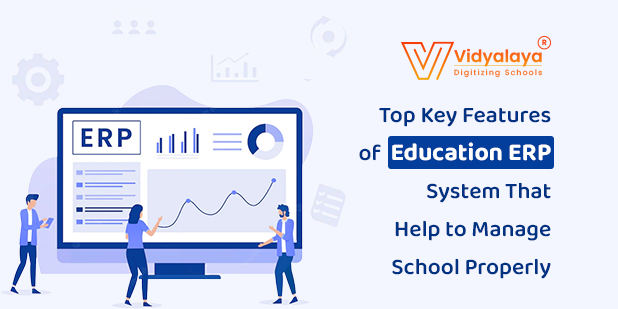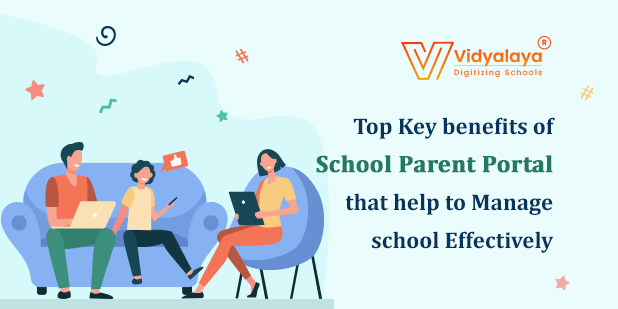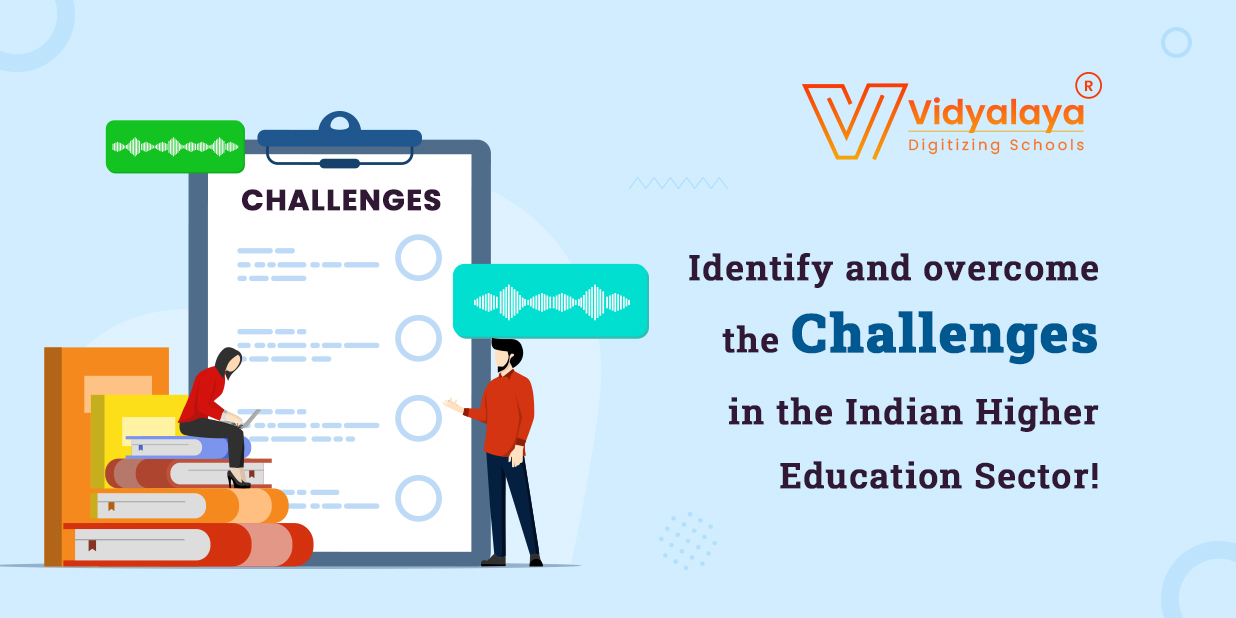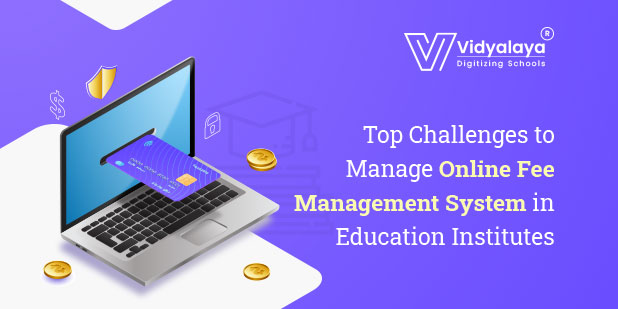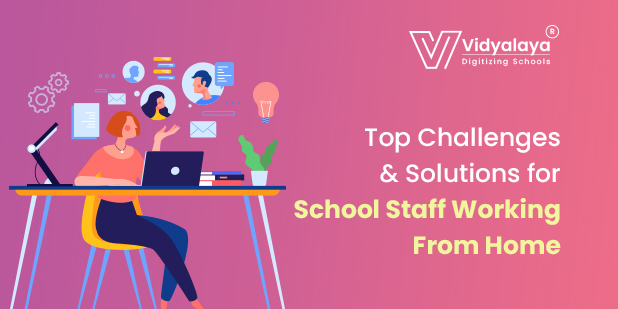Educational institutes always struggle to improve themselves in terms of resources, strategies, performance, and all other aspects. They seek various ways to scale up the parameters so that they can stand out in the crowd. Adopting a Learning Management System is one of the progressive approaches embraced by today’s educational institutes to sustain in this throat-cutting competition era. Although it’s not a newbie, managing it is definitely a daunting task. Especially after the pandemic, the use of an LMS System is becoming more widespread and varied for K-12 schools. The picture may look perfect, but hides several challenges in managing it. Let’s have insights into some of them to optimize the performance and implementation of the LMS system inside your campus!
Why is a Learning Management System a necessity for today’s schools?
A learning management system is software that creates, manages, and delivers different educational courses and programs very efficiently. It is an all-in-one platform and is best for administration, tracking, reviewing, documentation, and delivering the courses.
Here are some of the reasons why a learning system is the need of the hour for today’s educational institutes:
- Efficient distribution of course material.
- Diverse assessment options
- Easy to create, manage, track, and implement courses or programs
- Parental access to class schedules and assessments
- Resources in various formats to improve engagement
- Efficient communication
- Transparency in the entire process
- Digitalization of teaching and learning
- Enabling online learning
What are the challenges of managing a Learning Management System?
We have understood how learning management software is important for today’s educational institutes to improve themselves, but managing it is not a cakewalk. It is important to understand the challenges one may face during the management of a LMS system, especially if you are a newbie. This awareness will help you to optimize your system and learning programs.
Let us have an overview of challenges and ways to tackle them:
1. Time and Resource Management:
A Learning Management System benefits may lure you to implementation, but you must never underestimate the efforts and time in setting up the system for smooth operation. Course creation is one of the time-consuming tasks, especially if the course is customized for the institute’s requirements. The frequent upgrades, the addition of new material, and the discarding of outdated ones, all processes require time and effort management.
To handle this issue, one needs to create a comprehensive schedule and deadlines. Following this strictly can help you to achieve the desired goals easily and efficiently. A learning management system has built-in schedulers that can help you to efficiently manage time and resources.
2. Content Creation and distribution:
Content creation and publishing is one of the major steps that the entire Learning system depends on. Educational institutes that are going with self-creation of course content first need to learn how to use the course creation tools. Another option is to outsource this task. As today’s learners ideally prefer more impressive, engaging, and media-savvy content over the boring PowerPoint style, you need to gain expertise in it. Not only the course creation but adding value to the content by including images, videos, and 3D animation will improve student engagement. For publishing and distributing the content, one needs to have knowledge about LMS publishing tools.
To address this issue, teachers/course designers need to gain expertise by learning how the LMS content creation tool works. They can also get the manual or learn by taking the help of online tutorials.
3. Personalization:
In the education system, no one-size-fits-all, as every institute has unique requirements. This uniqueness is addressed by the Learning management software through customization choices. With an in-built range of flexibility, users and course designers can personalize the LMS design as per their needs.
An LMS system administrator can keep control on the degree of personalization power each user has. Trivial changes, like changing aesthetic forms, and creating dashboards allow end users to get a basic degree of customization.
4. Data Privacy:
Data privacy has become the biggest concern and challenge in today’s data-driven world. All leading software needs to comply with the General Data Protection Regulation (GRPR) to protect personal data. Vendors of the LMS system need to integrate strict measures to secure and maintain GDPR compliance.
Educational institutes must ask for the implementation of security practices while LMS System adoption. Even they can hire a data protection officer or cybersecurity agency consultant to make this task accomplishment better.
5. Third-party Integration:
Schools may already have existing systems that are running for different purposes like Payroll, admission management, school ERP, attendance monitoring, etc. To have complete insights into a student’s academic journey, it is necessary to integrate with these systems. This integration will facilitate operation streamlining, data accuracy, and friction reduction. However, not all software are compatible enough with different technologies, data security risks, and data formats. This can pose a serious concern for smooth integration.
As this issue highly deals with technical aspects, only Learning management software vendors can look into it. During the analysis phase, they need to look out for the other systems that are going to be integrated in the later stage. They need to perform integration and performance testing to recognize and resolve the performance issues. Or else, ask them to provide APIs that can integrate and simplify the communication between the systems.
6. User Engagement:
User onboarding is one of the tedious challenges in managing an LMS System. It is obvious that not everyone present inside the campus may be equally tech-savvy. So, getting everyone to start adopting the LMS is a daunting task. As everyone caters to different needs, it is highly difficult to account for the end-users.
This situation can be tackled by spreading awareness about the benefits of the LMS system that everyone will get after implementation. This user education will encourage the self-try for the users and more users will get onboard in the system. In the initial stages, you can even set up small rewards like incentives for teachers, and grades for students who make the shift.
Ending Thoughts!
Vidyalaya offers a premium Learning Management System that identifies the above-mentioned challenges and supports you throughout the implementation and post-implementation process. It is specifically designed to enhance students’ learning journeys and ease teacher’s teaching with modern parameters.
Our Learning Management Software will be your answer for daunting situations when you shift from face-to-face to online. Its potential to be beneficial, flexible, and convenient to accommodate changing learning requirements proves that having an LMS system is no longer a luxury but a necessity. We are here to listen to you and craft a tailor-made LMS System for you!

